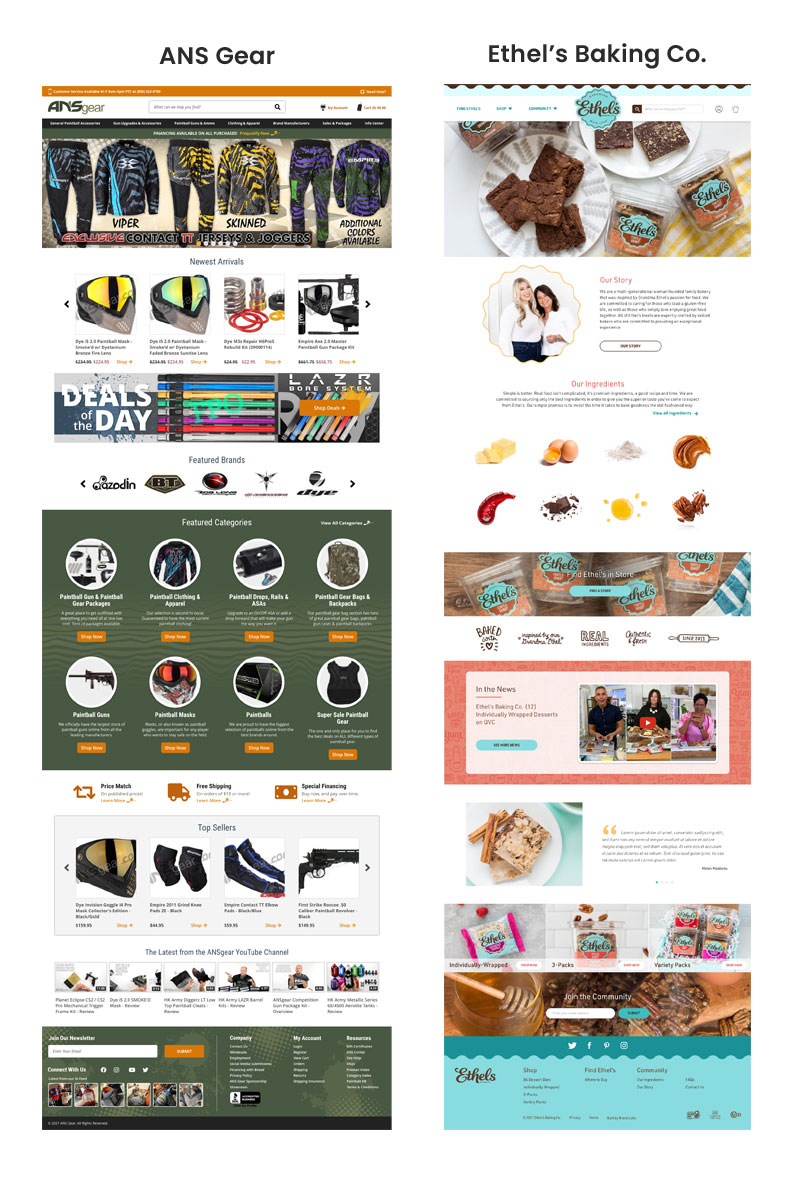We’ve all heard the expression, “A picture is worth a thousand words.” Its idea is simple: why write it when you just show it. (And if you haven’t seen the artwork, A 1,000 words is worth a picture, you should!).
So, if the shortest distance between selling your products is a graphical one, why would there be a product-driven design vs. storytelling design argument? The web, that’s why! Just look at these figures.
Studies have shown that telling a story makes information way more memorable. Psychologist Jerome Bruner found people are 22 times more likely to remember a fact when it has been wrapped in a story. Stanford’s Graduate School of Business took it even further to find that when people listened to pitches, either containing facts and figures or a story, only 5% recalled a statistic, but a whopping 63% remembered the stories, like commercials. And the list goes on.
As with anything, there’s always two ways to crack a nut and in the end, it’s more a matter of strategy, as both product-driven and storytelling design approaches have their strong suits. Under the right circumstances, each are forces to be reckoned with on eCommerce sites.
Storytelling design, which is a growing trend in multimedia design, uses a narrative to communicate a message and whose aim is to inspire the user to take action (and it’s not limited to film; stories can be told in pictures, verbally or in written form). Storytelling in marketing helps consumers to understand why they should care about something, working to humanize the artificial.
Product-driven design, on the other hand, leverages uniqueness to make a company stand out, be memorable and, ultimately, the customers’ solution by taking (what it hopes is) its better, more attractive products than the competitors and placing them front and center on a site.
Regardless of the strategy, the real trick is in striking balance. Ever been to a site that has so many products, so many categories, that it’s almost too overwhelming to navigate (like looking at a sushi roll menu)? Talk about analysis paralysis!
Both must be well-designed and with people in mind, designing and formatting images and words in a way that makes it much easier for users to understand the message being conveyed while moving them to a desired, mutually beneficial action that’s smooth, not exhausting or frustrating. At the same time, it’s still very important to show the product. Meaning, it needs to give people a glimpse of how the product can help them, the problems it solves and the goals it can help them achieve with it.
Which to use when and which might be right for you? You’ve come to the right place! Whether your site is inventory-heavy, like paintball equipment leader ANS Gear (a perfect example of product-driven storytelling), or gluten-free dessert maker Ethel’s Baking Co. (a great storytelling design site built to evoke downhome kitchen goodness), Brand Labs knows how to tell stories.
Let Brand Labs make your ecommerce site come to life with our incredible storytellers. Contact us today to learn how we can up your eCommerce game, giving you even more of an edge in today’s nuanced and competitive landscape.








